
As a special educator, you may find yourself in many conversations with other teachers that sound something like this:
Sound familiar?
In this post, we'll be targeting using a bank of intervention strategies to support all students – from our own caseload (students with IEP goals and objectives) to students we're concerned about.
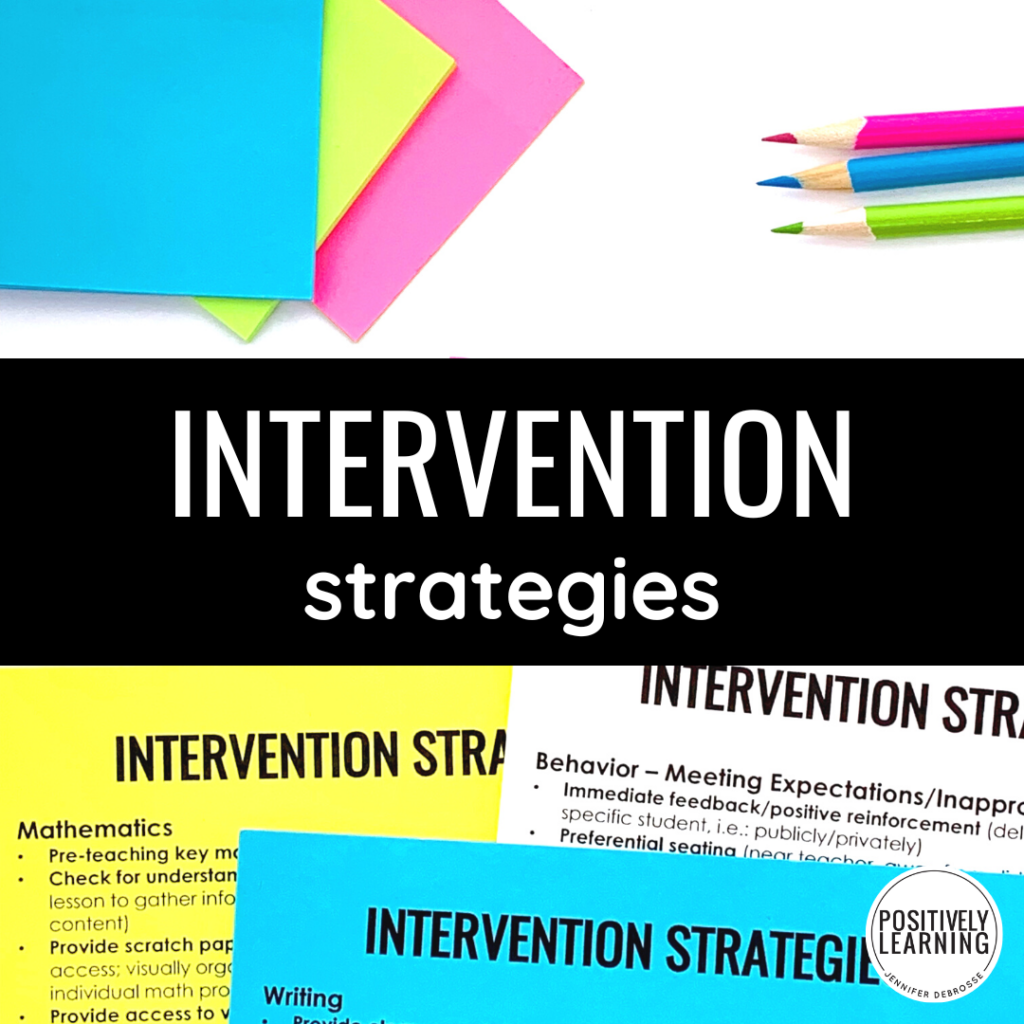
You may already be asking “What's the difference? A strategy is a strategy.” And you're absolutely correct.
I've organized a bank of research-based intervention strategies I refer to for my own students – you may think of it as a teacher's “bag of tricks” or toolkit. This bank is also a supportive reference tool when talking with concerned general educators.
Although conversations about our students' progress can happen any time of year, it often seems that there's a significant increase during the first six weeks of the school year.
That makes sense – Back to School season is winding down, routines are emerging, and baseline data is being collected. Soon after, my email often starts blowing up or maybe I'll get approached in the hallway for a quick “got a minute?” chat.
As special educators, this is when we step into a consultant role and every concern is validated.
Whenever I find myself in this type of conversation, my first step is to listen, then ask questions with the goal of learning more.
Notice how I have NOT launched into “fix it” mode, but instead focus on gathering more information.
EVERY conversation is taken seriously, of course – we're talking about student learning! But we're also focusing on supporting teachers.
What if your gut instinct is telling you that this student isn't demonstrating learning concerns (academic and/or behavior)? Okay, well you may be spot on with this. It may be the general educator who needs the support – and that's okay, too.
I've created an Intervention Strategies Kit to support this process – it's very helpful and designed to help EVERY student whether they will be referred to the special education process in the future or not.
One thing I'm especially excited about with the Intervention Strategies Kit is that the entire process also supports the general educator.
It's laid out clearly – learn more about the child, choose strategies, track strategies for a designated period of time, reflect on results:
Think of how many other issues we are faced with that could benefit from the same process!
Intervention Strategies Kit
Here are the tools to support this initial student referral process. Your school may already have a specific RTI program or Student Support Services protocol – be sure to refer to that first! These resources may still provide support before entering a more formal process – I believe knowledge is power, so let's learn more about what's working (and what's not!):
Intervention Strategies Meeting Kit – Includes:
Google Form – track the intervention (up to 3 strategies) to document progress with the team. There's a link to access the form and you will be instructed to “Make a Copy.” Use this form to organize communication and document RTI interventions.
Intervention Meeting Forms – two formats, use at the initial referral meeting or as documentation for RTI
Intervention Strategy Banks – “cheat sheets” with strategies to brainstorm and implement in the following areas:
These cheat sheets can be also added to your special education teaching binder as reference for writing I.E.P. and other support plans. Includes over 85 research-based intervention strategies!
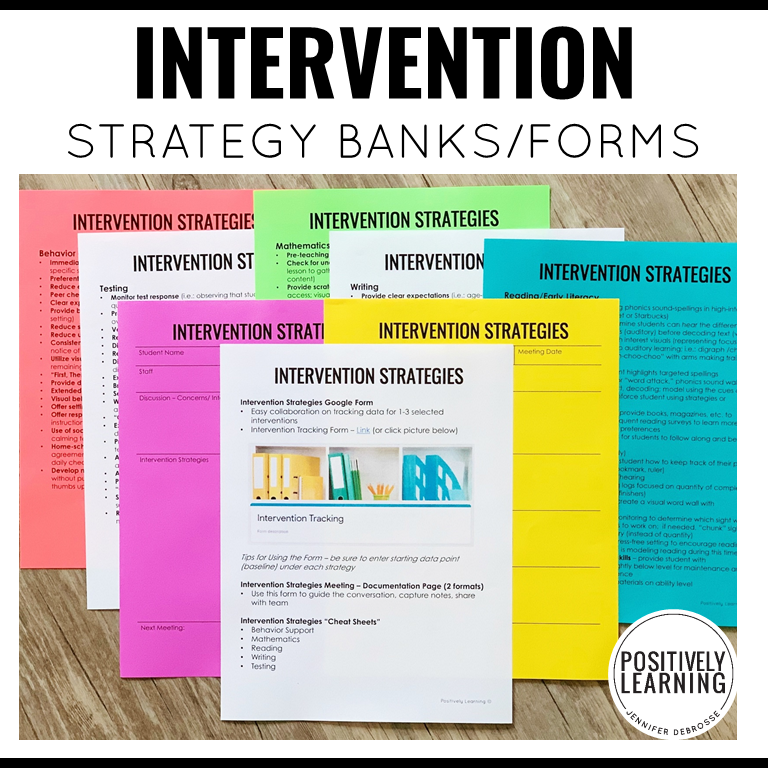
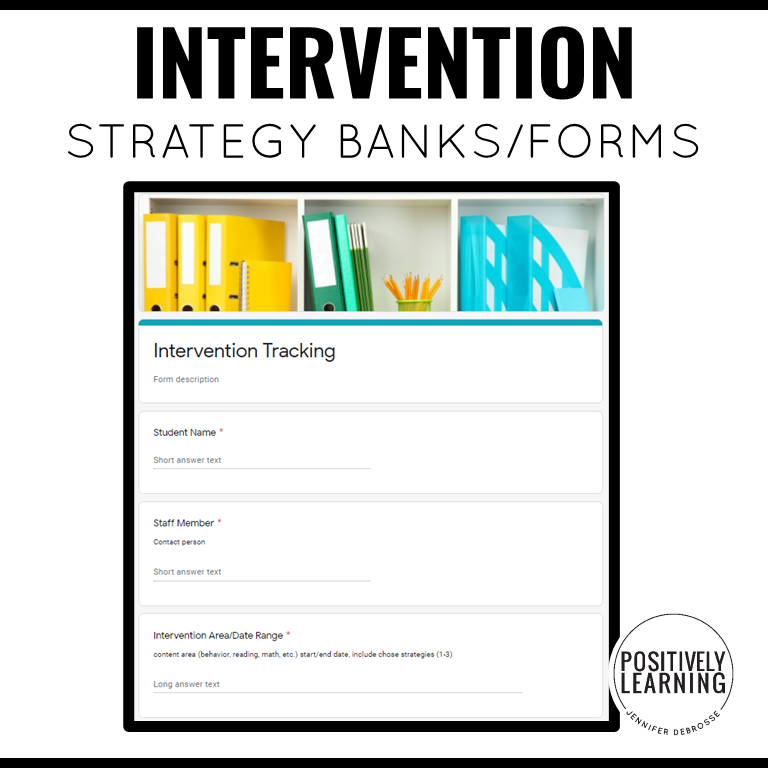
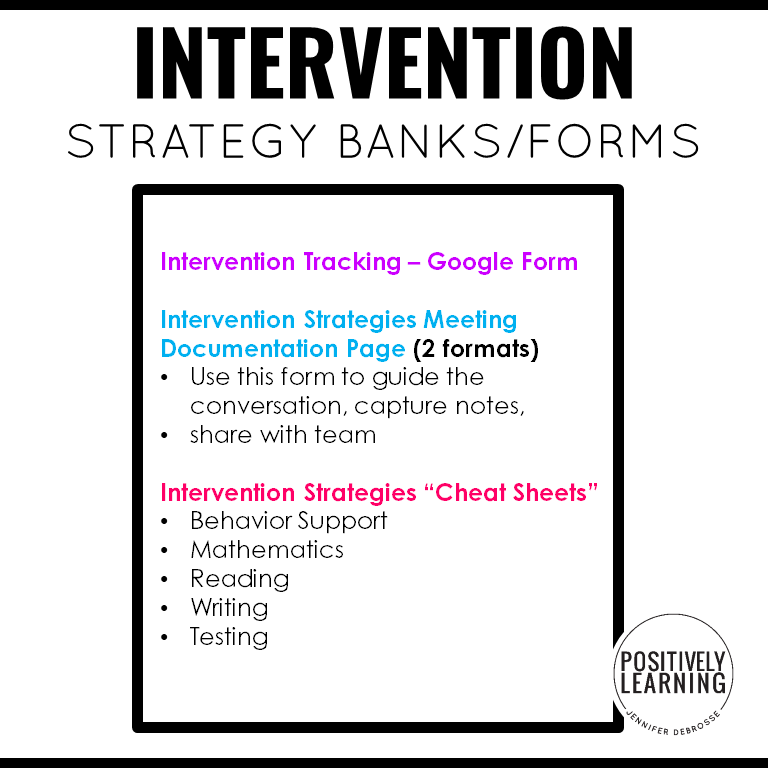
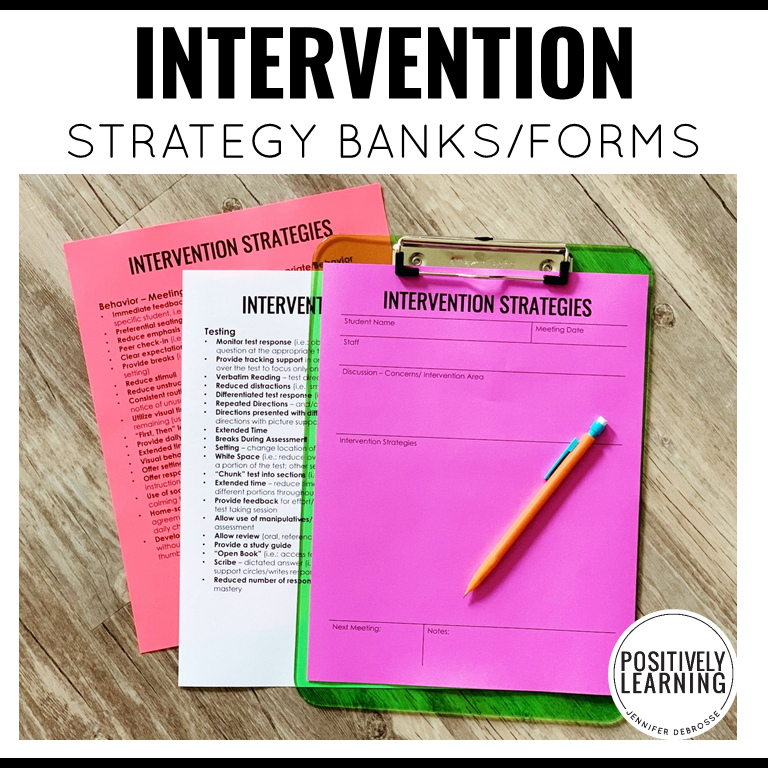
Friendly Feedback for the Special Educators/RTI Intervention Strategies Kit
“I appreciate all the strategies given to support our students so they can be successful!”
“As the interventionist at a K-8 I use these to help teachers identify the needs of their students!”
“This was so helpful when we would meet as a team for Child Find meetings.”
“This is such a valuable resource that provides a wealth of information in one place. Thank you!”

I’m Jennifer and I was a special educator in the elementary school setting over the past decade. I entered the classroom every day dedicated to making learning inclusive AND engaging.
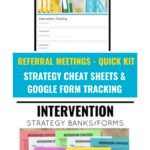

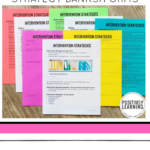
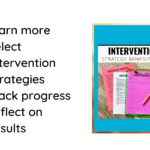
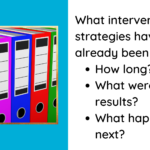
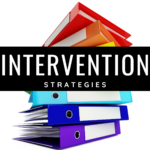
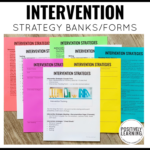
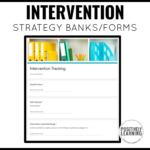
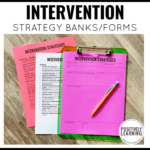
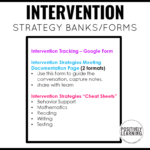
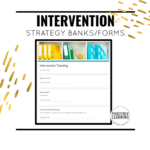
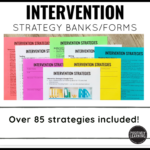
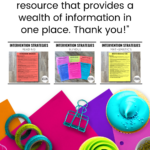
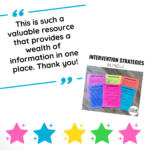



This website uses cookies to ensure you get the best experience on our website. See full disclosure here.
This website uses cookies to ensure you get the best experience on our website.
See full disclosure here.